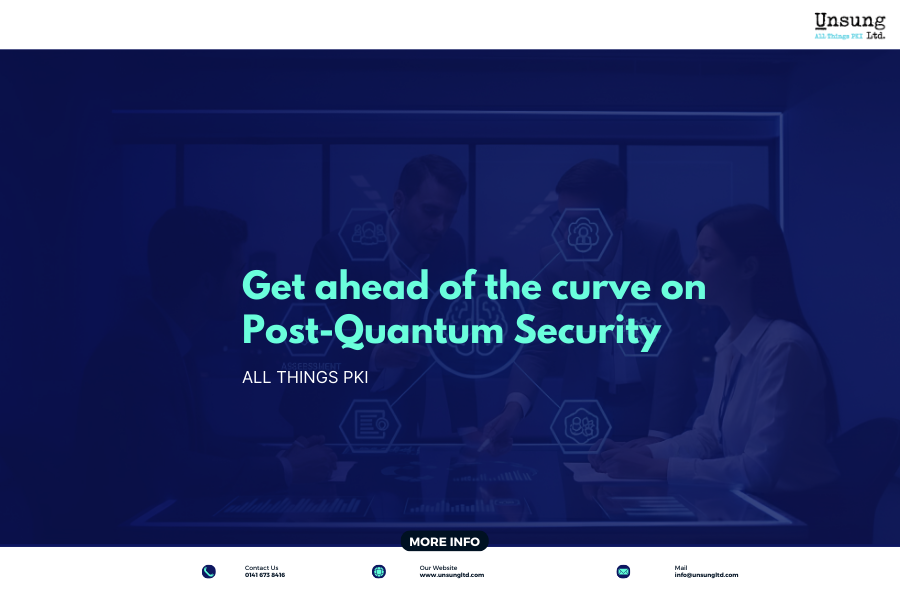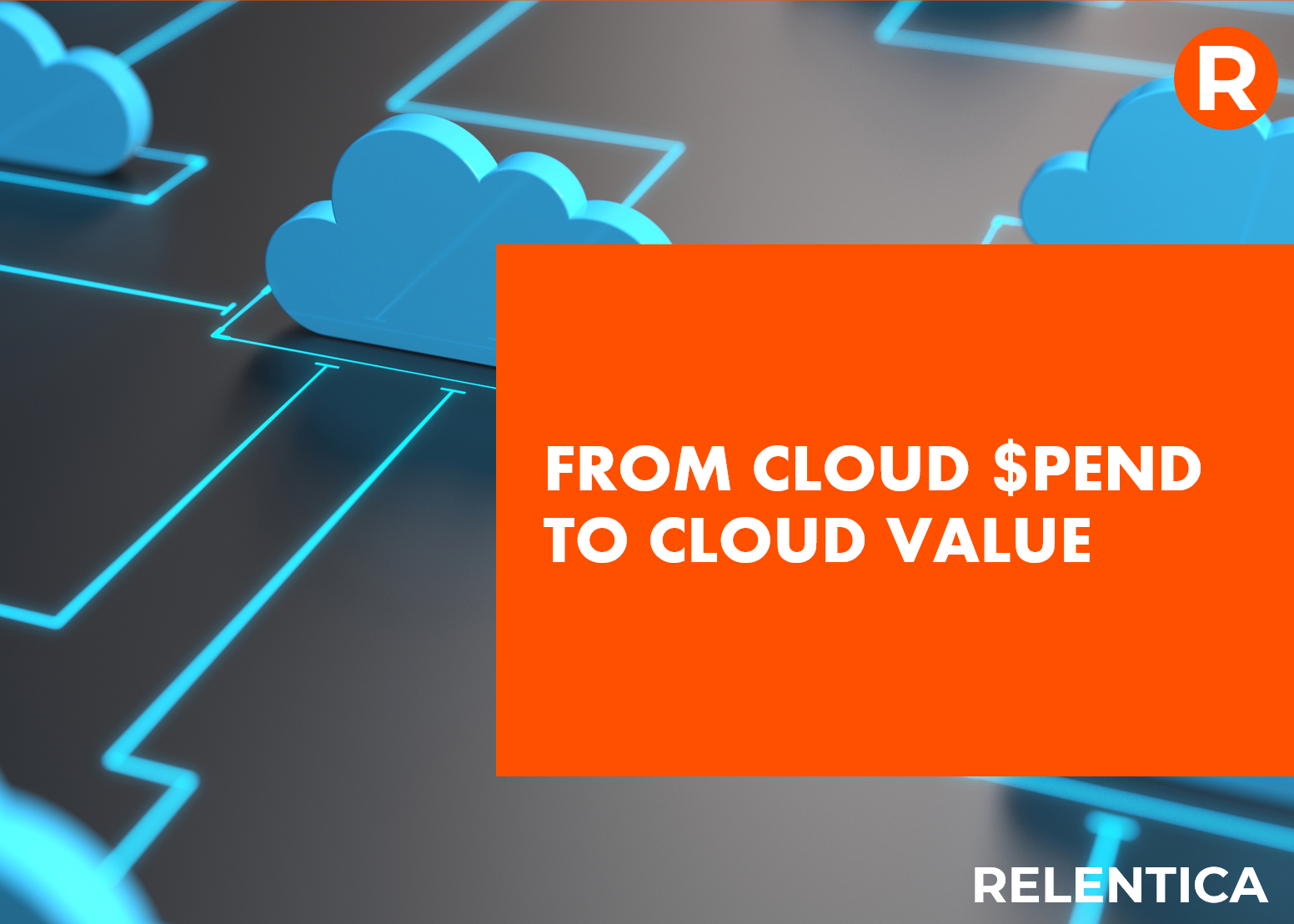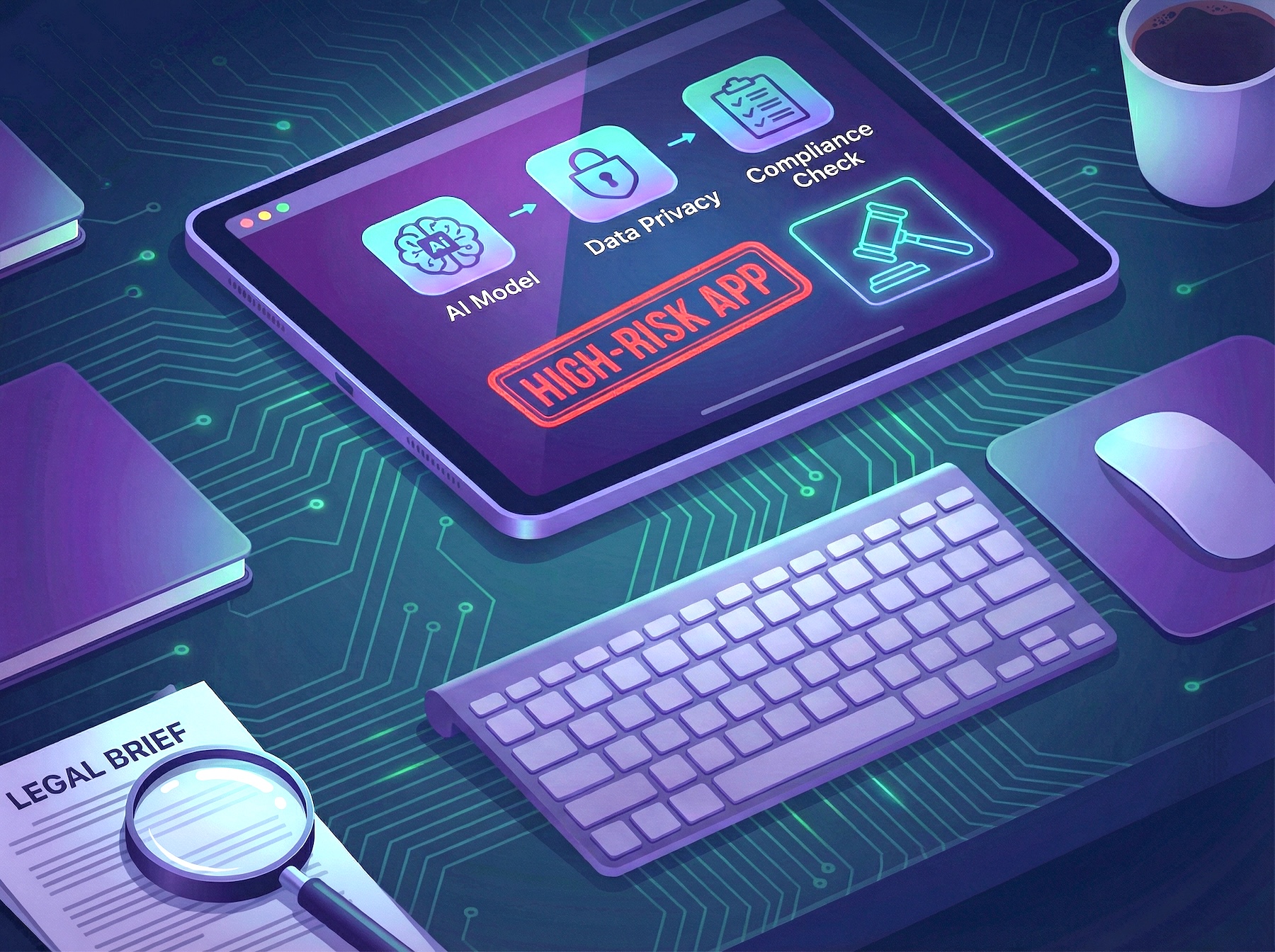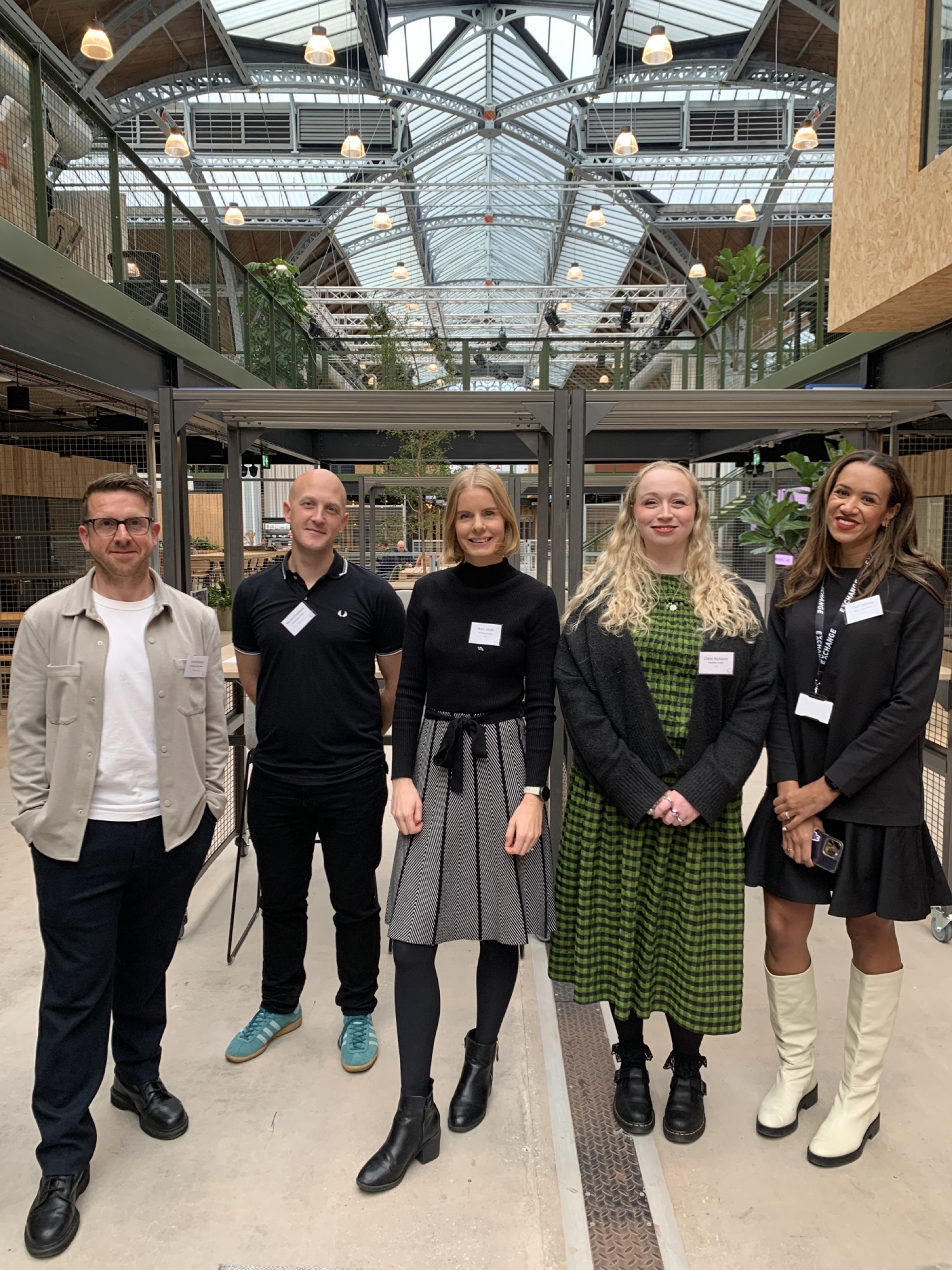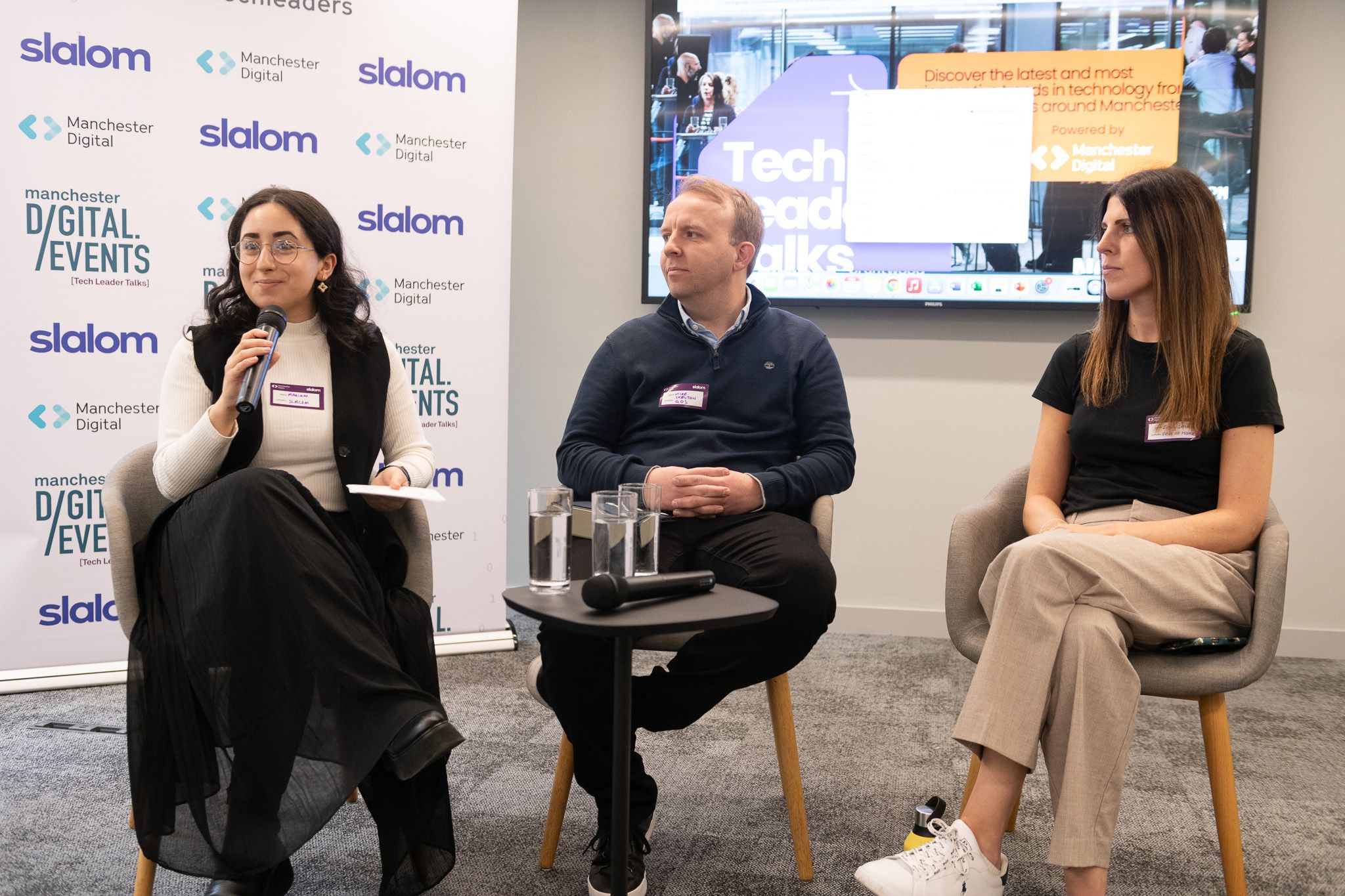
Manchester Digital’s Tech Leader Talks brings together the region’s business and organisation leaders to share insights from their own career highlights and thoughts around where they see the industry and technology developing.
The focus of this lunchtime event, held at Manchester Technology Centre, was around data and how it can be used for business insights, predictions and to enhance the user experience. There are also many issues around governance and ethics to consider, especially moving forwards as the ability to process and store large amounts of data increases rapidly.
Chair of Manchester Digital and Chief People and Operations Officer at Auto Trader Alison Ross MBE introduced the event, which welcomed speakers from Pets at Home and Government Digital Services - which are both organisations doing really impressive work using data insights.
Our Tech Leader Talks are sponsored by Slalom and their Manchester Managing Director Caroline Grant introduced the panel talk, saying “I love coming to these events and seeing the industry connected together. At the heart of the tech industry is data and every business needs to be data literate because it’s the springboard of everything else. “
The panel was expertly hosted by Mariam Hussein, who is a multi award-winning Software Engineer at Slalom and she guided the talk with a series of thought-provoking questions around data monetisation, data literacy, and data governance, focusing on practical insights along with personal experience.
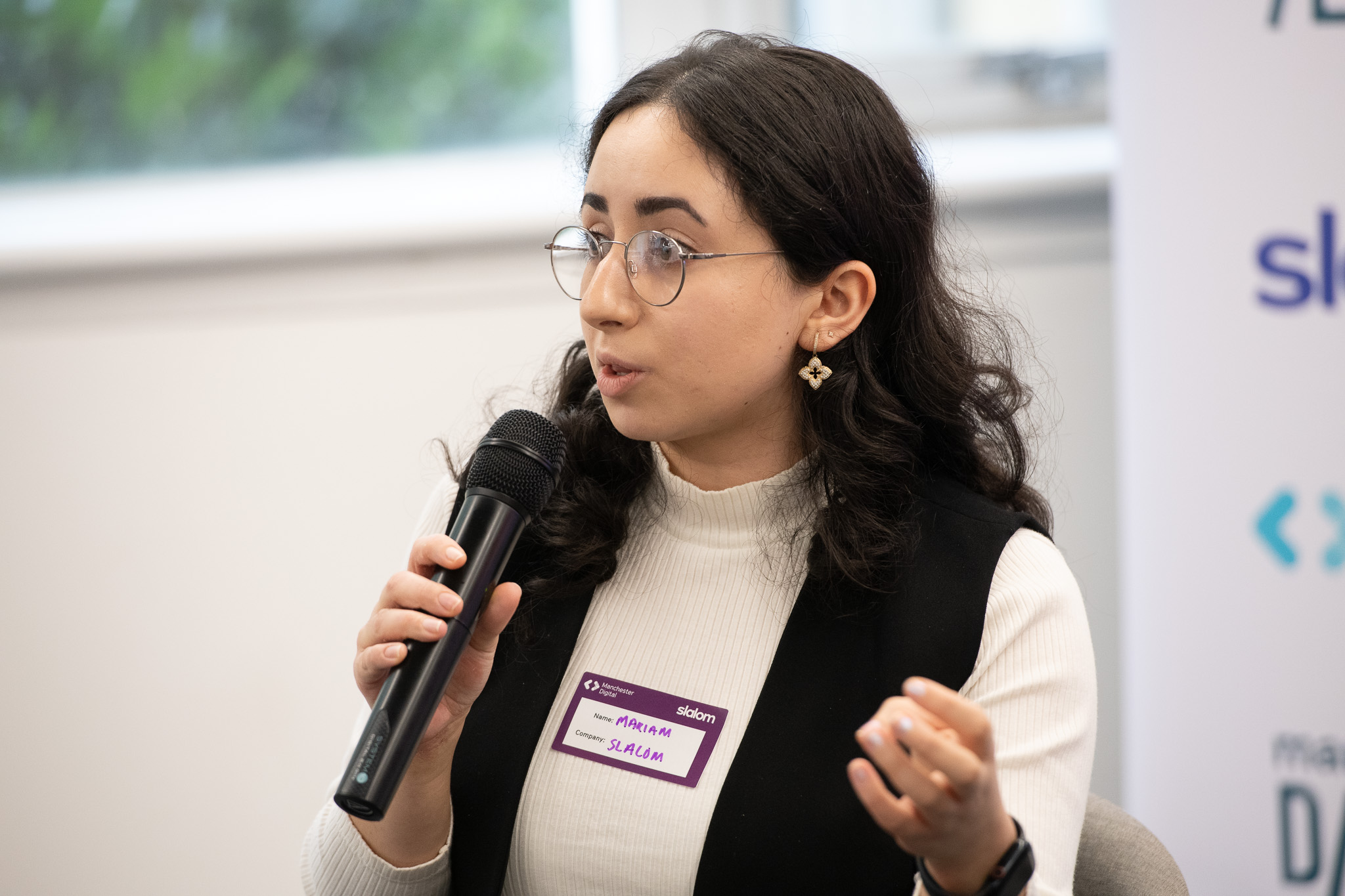
The panel consisted of Mike Skelton, who is currently Deputy Director at Government Digital Service and also spent 10 years working for the BBC as a Product Manager, and Emily Smith, who is Head of Data science at Pets at Home, and has been a data scientist at BJSS and BAE Systems.
Mariam asked the panel what parts of their current work they were most proud of. Emily said, “The key one for me at Pets at Home is when we brought data in-house. This now gives us the ability to predict what products customers will want to buy and send vouchers out for that, for example.”
Mike added, “We’re working with all the government departments and how we can join it all together to make the experience more coherent. For example, when someone dies, their next of kin will be able to just go to one place and let us know, which of course, makes it so much easier for people at a difficult time.”
Mariam followed up asking about the return on investment from using data for customer insights. Mike said, “My best example of this would be from the BBC. People think they know data, without using the data - by just making assumptions about what people want. However, using data insights, we changed the position of information on the web pages, and this showed a huge impact on how people interacted with the content and increased engagement by 50%.”
Emily added her view from Pets at Home, “We’re currently going through a huge transformation, where the different parts of the business have all been brought under the same system, the same website and the same app. We now have the ability to use customers’ retail and store purchase history to connect the dots and create a personalised experience. This will give a huge return on investment.
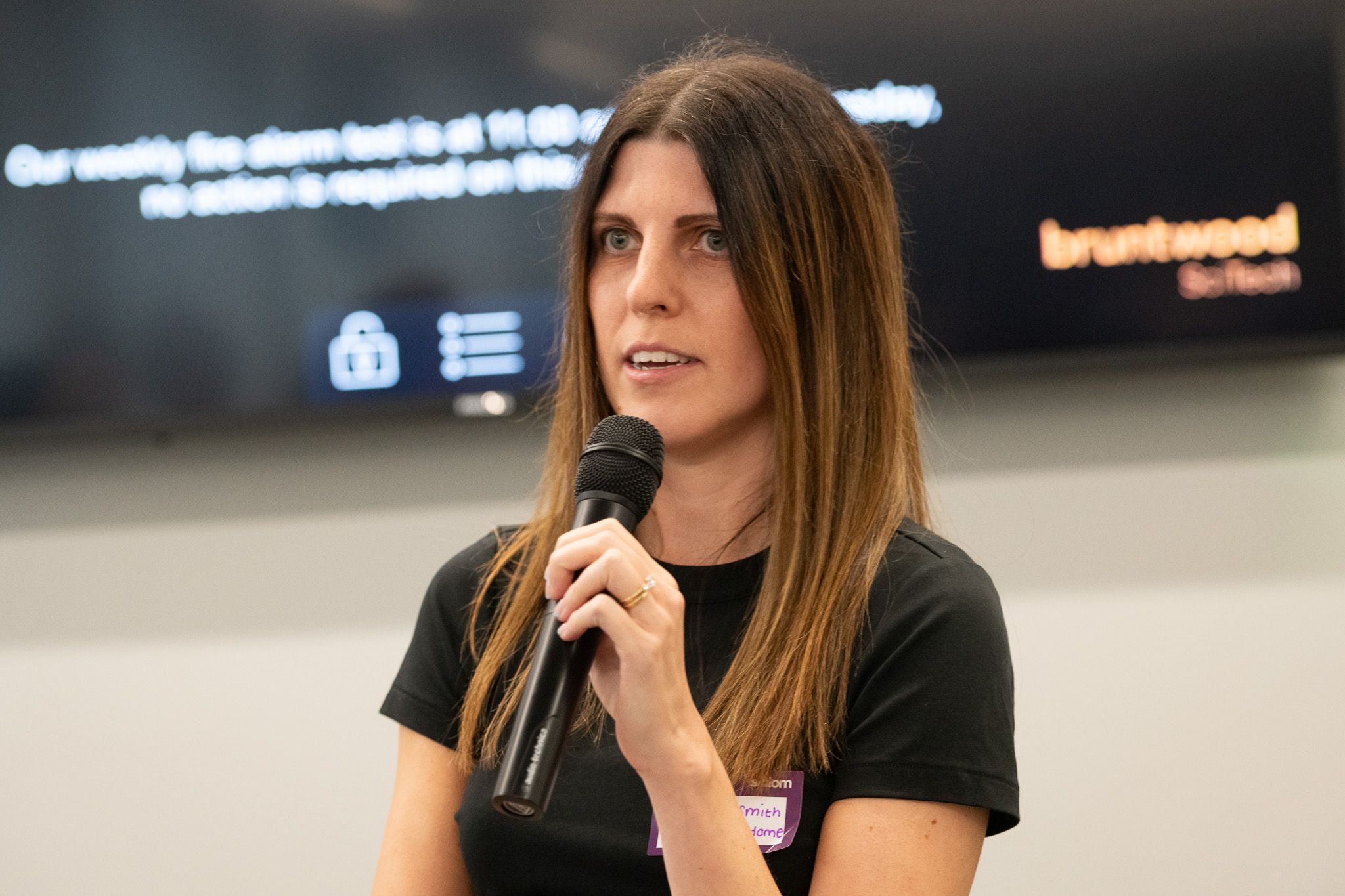
“We moved to a new distribution centre recently - and the data team were in charge of the product layout because we can use our data sets to put products that are bought together close together in the warehouse to improve efficiency.”
Mariam asked about how the panel priorised data sets and how they used novel techniques to improve their data and outcomes.
Mike said: “These novel techniques won’t solve fundamental problems if you have data problems. It’s important to understand the purpose and drive of what you want to do with the data. Within the Government, of course we have to be very aware of large language models with regards to ethics and ask, where is the data going - will someone else use it to train their model, for example.
“Forums like this are really helpful and finding peer groups to talk openly about what works and what doesn’t work. We always come back to clarity of purpose and having clear parameters.”
Emily said: “For us, it’s about using the tools that we have but putting a twist on it and looking for new uses of the data that is available. For example, recently when we opened a store, we have models that predict initial sales, but then we also use our data to predict how much business it will take from existing nearby stores. We can see which stores that customers shop at and when they switch to a newer/ nearer store. For this, instead of using a regression we used a gravity model. For the new distribution centre, we built this model from scratch.”
“In terms of advice for others, this can be extremely painful and you have to allow people the time to fail. Businesses want solutions yesterday - but you need to give people time to try different things until they find what works. Giving them the time and freedom to be creative is absolutely vital.”
Moving onto ethics and governance, Mike said: “For the Government this is especially crucial because there are a lot of potentially bad situations if we get it wrong. The Gov.uk website has the highest trust ratings so we have to protect that. But it’s also important to have the drive to make the Government more efficient using data and technology.
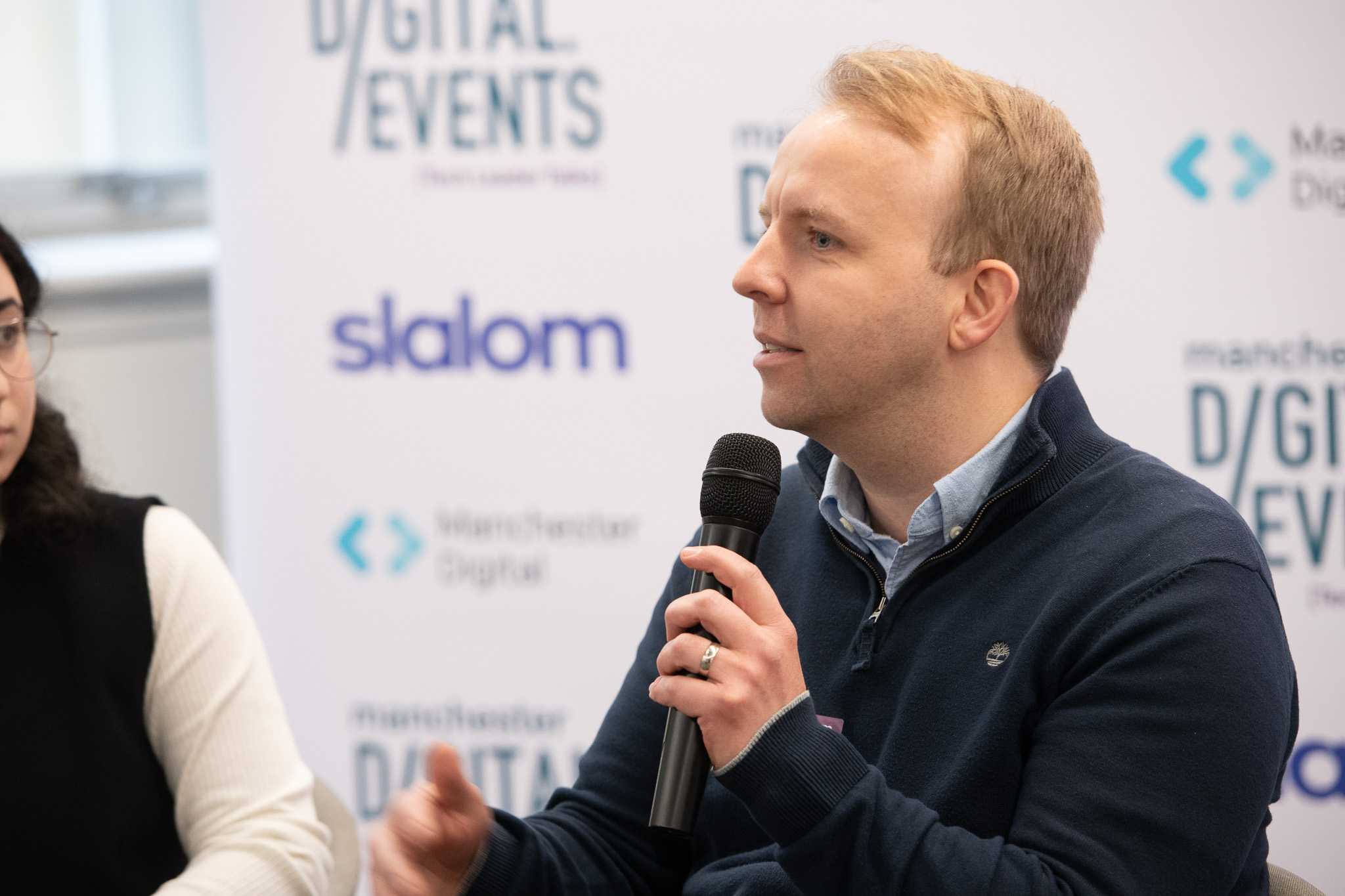
“How we address this, is to always keep humans in the loop. We have data scientists checking everything, and it’s also so important to have a diverse team of people from different backgrounds as they will spot things that other people wouldn’t. We have to put a lot of guardrails in place in order to realise the benefits of this technology.”
In response to the question around democratisation of data, he added, “In principle, I like this as a concept but we have to consider security, thinking about who has access and what could go wrong. It’s not a free for all.”
Emily added, “I completely agree - in principle great that everyone can self-serve but we must tread very carefully.”
To wrap up the session, Mariam asked for one key recommendation from the panel. Emily said: “My advice would be to allow people to be creative and innovative to do stuff they’ve never done before. Once you see this implemented, there’s no better feeling and it’s the most satisfying part of the job.”
Mike said: “Focus on building knowledge and literacy about data, and also challenge cultures of fear. Don’t see data as a bolt on. The best services are built on strong data foundations, so it’s important to get more people data literate.”
We’d like to say a huge thanks to Slalom and Bruntwood SciTech for sponsoring this year’s Tech Leader Talks. If any businesses are interested in sponsoring Manchester Digitals Tech Leader Talks 2025, please contact kate.wilson@manchesterdigital.com.
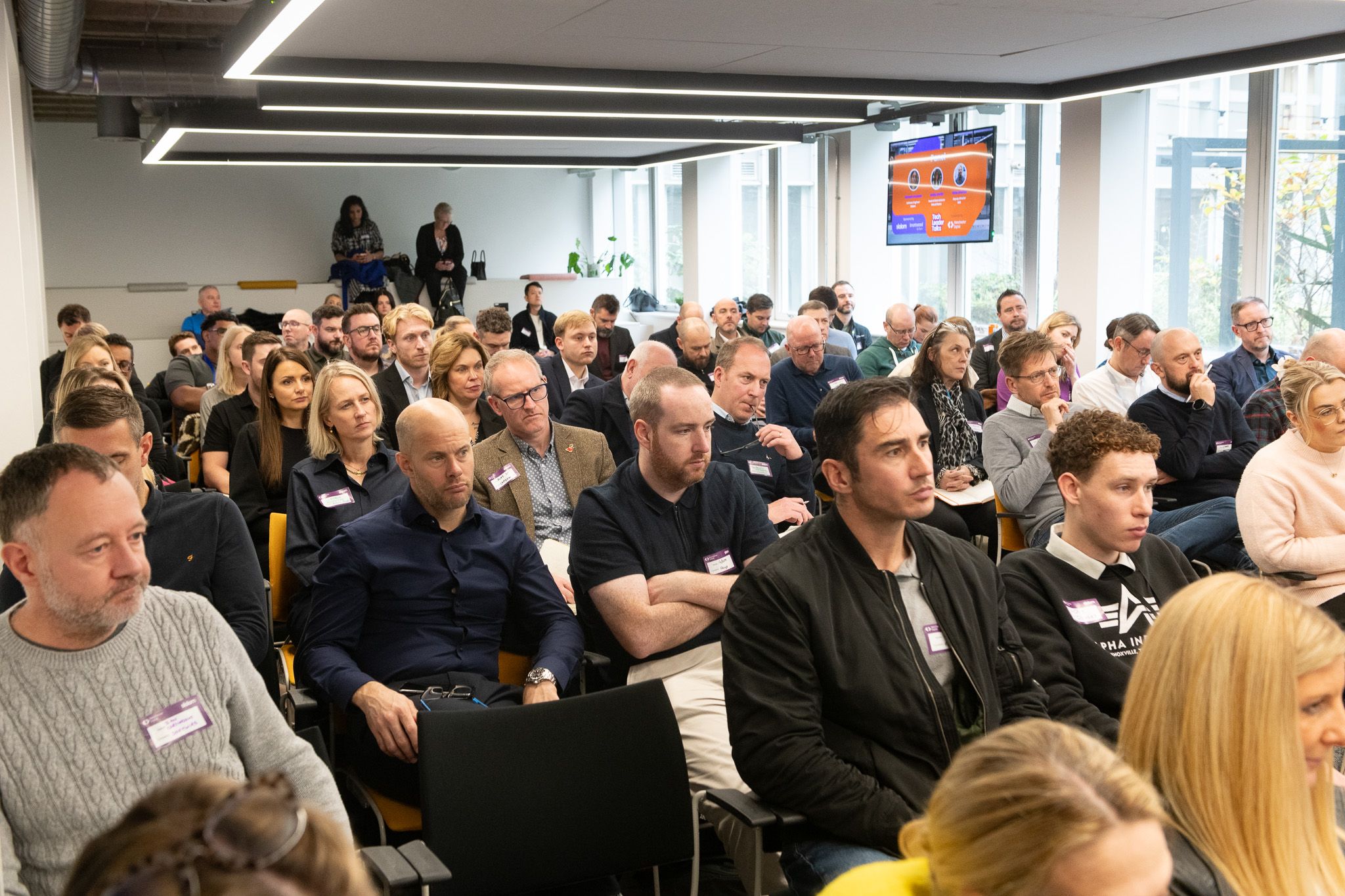
-------------------------------------------------------------------------------------------
Manchester Digital’s Emerging Tech Conference takes place on 5th December and is sponsored by Amazon and IBM.
Sign up for tickets here
